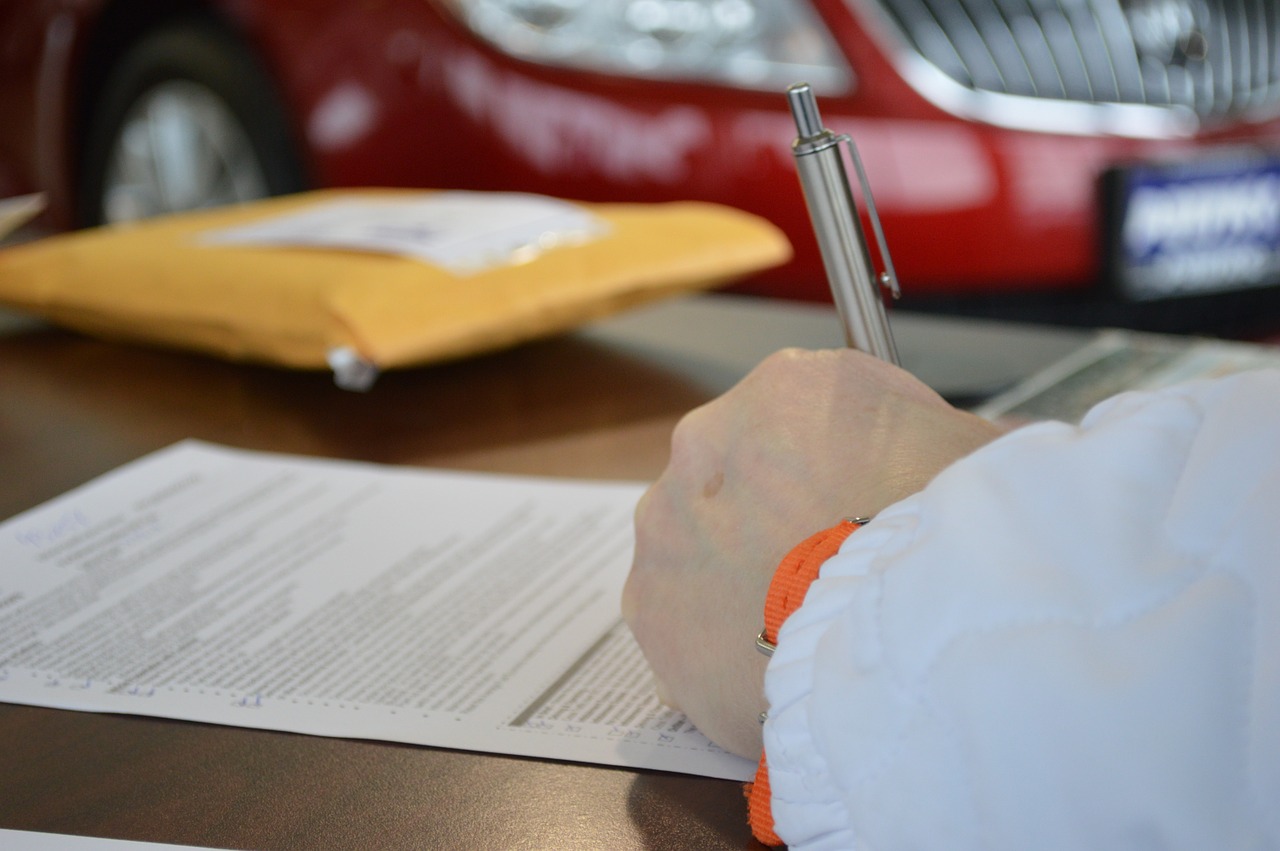How Can a Car Loan Repair My Credit?
When your credit isn’t where you’d like it to be, you’re constantly thinking about credit repair. It doesn’t help that your credit affects all kinds of things in your life, not just if you get qualified for a loan or not. After all, your car insurance rates, qualification for housing, and even your employment might be in jeopardy if your credit is less than ideal. If you’ve heard that getting a car loan can help with that, you might be wondering if that’s the truth or not.

After all, how can buying something improve your credit? The whole reason your credit is damaged in the first place could be that you got in over your head with purchases. It’s understandable that you would be skeptical about the credit repair value of a car loan, because many people are.
To really understand if a car loan helps with credit repair or not, you first need to understand more about your credit and how it works.
What’s In Your Credit File
Most people don’t really understand what’s kept in their credit file. That’s actually quite silly since you can get a free credit report and see for yourself. Even if you do, you might be overwhelmed with the content and not process what all you find inside.
The fact is if you want to go through credit repair, you must know what’s in your credit file. The content directly impacts your credit score. Properly managing your activities so you get the right items in your credit file will in turn help fix your credit.
Payment History
Creditors want to see how good you are about paying your bills. That’s why on your credit file one of the more important items is your payment history. It shows each time you were reported by a creditor for paying slowly or paying late on a bill.
The payment history will also highlight any missed payments. Obviously, the more of these negative marks on your record, the more it will negatively impact your score. The absence of negative entries helps, as do reports from creditors that you’ve been paying on your credit lines on time.
Amounts Owed
Another key item on your reports is just how much debt you have accumulated on your various credit lines. It allows creditors to see if you’re overextended on credit, so they know not to lend money to you and make the situation worse. After all, the last thing a creditor wants to do is lend to someone who can’t possibly repay the money.
Collection Actions And Public Records
If you haven’t been diligent about paying your bills in the past, you might have been sent to collections. These efforts to get the money you owe will show up on your credit report, letting future potential lenders know of your past deeds.
The same thing goes for any former creditor who has successfully gotten a judgment against you through the courts. Obviously, any collection efforts or public records on your credit report are negative, so the best thing to do is take every step necessary to keep those off.
Inquiries
An inquiry is when someone asks to see your credit file. This should only happen when you apply for credit or do other things where you authorize a company or person to pull your credit file, like applying to rent a house or getting a new insurance policy.
There are both soft and hard inquiries. A soft inquiry is visible to other creditors on your file, but it doesn’t impact your score at all. Hard inquiries will cause your score to dip some and they usually stay on your report for two years.
The purpose of leaving inquiries on your report is so other creditors can see when you applied for credit in the recent past. If someone is applying for credit lines too often, it can be an indication of a serious problem.
Credit Mix
The mix that’s looked at by creditors and the credit bureaus is both revolving and installment credit lines. You really should have some of both because it shows you can manage them properly.
A revolving credit line is one where you have a limit to how much you can borrow, but you can borrow that money as needed. For example, a credit card has a spending limit. One month you can use one amount on the card and another month you can use a different amount. As you pay off what you’ve used, plus interest, that much becomes available to borrow again.
With an installment loan, you borrow a sum of money up front, then pay it back in regularly scheduled installments. A car loan is a good example of this. Installment loans can involve things like variable interest rates or a balloon, which might mean what you pay each month can change somewhat.
Getting A Loan And Hard Inquiries
When you apply for a car loan, it adds a hard inquiry to your report. As you know, this in turn can reduce your score, although the effect most likely would be only a few points. Still, not wanting to damage your score at all is a noble cause, especially if you’re planning to shop around and apply for multiple loans.
Before you start panicking about several inquiries appearing on your credit, hurting your score, you should know that the bureaus realize anyone responsible shops around for the best deal on a car loan. If you have multiple inquiries within a two week period or so, they all combine into a single inquiry. This helps you to avoid serious damage to your credit score.
A hard inquiry only does damage to your score for about a year after it appears, even though the inquiry keeps showing up for two years. This just creates a history for lenders so they know if someone is repeatedly trying to get a loan since that can be a potential signal for bigger problems.
This means you can shop for the best auto loan situation possible without harming your credit repair efforts. But there’s more when it comes to car loans and effects on your credit.
A Car Loan Increases Your Credit Load
You also need to keep in mind that getting a car loan is a fairly big commitment. For many Canadians it’s the second-largest thing they pay each month, behind housing costs. To deny the gravity of the decision could lead to major peril.
Getting a car loan will increase the overall amount you owe to creditors. This could be a bad thing if you apply for credit again anytime in the near future since you might be denied based on that factor alone. That doesn’t mean you shouldn’t get a car loan, but rather that you should be aware of the complete effects it could have on your credit situation.

Keep in mind that you need a car to get around. Buying one for cash often means getting something with mechanical problems. Having to constantly fix your car not only costs more money, it’s unpredictable and can leave you without private transportation, which is supposed to be the whole point of owning your own car.
How A Car Loan Helps
While applying for a car loan does create a small amount of damage for your credit score, there are some positive effects after you’re approved. This is where getting a car loan absolutely can help repair your credit.
At first, you’ll notice your credit score might take a small dip. That’s normal and to be expected when you get a new credit line. You wouldn’t want to take on more credit commitments right then anyway, because you could easily get in over your head financially, so the fact that hurts your chances of being approved for something like a credit card really isn’t a big deal.
Over time, as you pay for your car by the due date, you’ll be building positive credit history. As you now know, the most recent things in your file count towards your score the most, so being current on your car loan is a great way to do some credit repair.
Car loans are usually reported as installment loans, just like a mortgage or student loans. If you also have at least one revolving credit line, like a credit card, this will help with the credit mix. That’s a positive thing for your credit score.
As you pay on your car, the loan amount will decrease. If you’re able to pay extra towards the principle or the amount of money you borrowed, your credit situation can improve further as you owe less money overall.
Other Things You Can Do
Now you know that getting a car loan and paying on it on time each month will indeed help with credit repair. That’s powerful knowledge and something you probably already need to do, but it alone might not be enough to get your credit to the level you really desire.
Fortunately, there are other things you can do for credit repair. Exactly how much each one will affect your credit score really depends on your unique situation. The best thing to do is start now since the timeline for these methods to help your score isn’t always clear.
Pay All Your Bills On Time
It might sound obvious, but you need to pay all your bills on time. While you most definitely want to make loan payments on or before the due date, you want to avoid being late on anything. After all, if you pay late for other items, the person you owe money might take you to court and get a judgement. Plus, some things you might not expect actually report to the credit bureaus.
Besides, if you can’t pay your bills on time that’s usually a sign of being over-extended. In that kind of situation, you’re teetering on the brink of financial ruin.
Paying your bills on time requires careful planning and monitoring. You must create a budget and stick to it if you want to ensure that everything will be paid. Too often, people make a budget and then never measure afterward how closely they follow it. By looking over what you spent your money on the previous month, you can get a better idea of where you might want to cut back on spending, plus the areas where your budget perhaps isn’t entirely realistic. It’s best to have a budget that you can follow, but that also helps you to not spending money without thought.
Use Credit Cards Wisely
One specific area where people often get into trouble financially is credit card debt. It’s not uncommon for someone to be fine with their credit card usage for months or years, then suddenly get swept up in a situation they struggle to escape.

The overall amount you owe for all credit lines matters, including your credit cards. It also matters how much of your available credit you’ve used on each card. Ideally, you never have a balance over 20 percent of the card’s limit, maybe 30 percent in extreme cases. Also, you shouldn’t spend money on a credit card you can’t pay off that same month. Not following these guidelines can lead to a tough situation. Credit card interest compounds quickly, ballooning the amount you owe if you don’t pay off the balance each month. It’s best to be wise and just avoid the situation.






